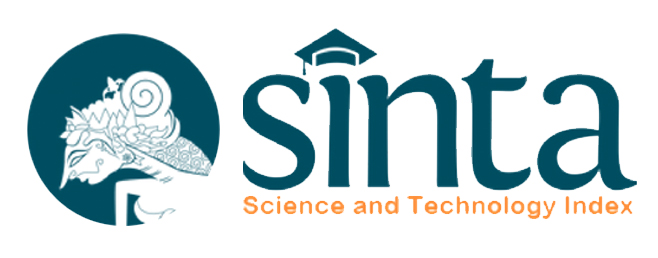THE INFLUENCE OF FINANCIAL LITERACY AND FINANCIAL INCLUSION ON MSME PERFORMANCE WITH FINANCIAL MANAGEMENT BEHAVIOR AS AN INTERVENING VARIABLE IN MSMES IN WEST JAVA PROVINCE
DOI:
https://doi.org/10.33603/signal.v13i1.9865Keywords:
financial inclusion, financial literacy, financial management behavior, UMKM performanceAbstract
The number of MSME units in 2023 has increased, but the fact is that from this increase, MSME actors are less able to maintain their performance which has an impact on reducing their productivity, conceptually if the unit increases, the amount of production increases, but the gap phenomenon here is the lack of ability of MSME actors in managing their business, especially from the aspect of financial management. This study observes and analyzes using a descriptive quantitative approach which is defined as a tool to describe the situation and condition of their facts and symptoms obtained while the analytical tool used is using SEM using 400 SMEs in West Java. The results of the study state that financial literacy affects the performance of MSMEs, financial inclusion affects the performance of MSMEs, financial literacy affects the financial management behavior of MSME actors, financial inclusion has no effect on the financial management behavior of MSME actors, financial management behavior affects the performance of MSMEs, financial literacy affects the performance of MSMEs with financial management behavior as an intervening variable and financial inclusion affects the performance of MSMEs with financial management behavior as an intervening variable.
References
Abdul Razak, D., & Amin, H. (2020). THE EFFECTS OF FINANCIAL KNOWLEDGE, SOCIALISATION, ATTITUDE AND SKILL ON MALAYSIAN SMES’ PERFORMANCE. International Journal of Industrial Management, 8, 1–11. https://doi.org/10.15282/ijim.8.0.2020.5758
Abor, J. , & Quartey, P. (2010). Issues in SME development in Ghana and South Africa. International Research Journal of Finance and Economics, 39(6), 215–228.
Acharya, P. U. (2015). Literacy in Money Management - A Path to Sustainable Growth. International Journal of Management, Innovation & Entrepreneurial Research, 1(2), 43–47. https://doi.org/10.18510/ijmier.2015.123
Adegbite, O. O., & Machethe, C. L. (2020). Bridging the financial inclusion gender gap in smallholder agriculture in Nigeria: An untapped potential for sustainable development. World Development, 127, 104755. https://doi.org/10.1016/j.worlddev.2019.104755
Ademola, S. A., Musa, A. S., & Innocent, I. O. (2019). Moderating Effect of Risk Perception on Financial Knowledge, Literacy and Investment Decision. American International Journal of Economics and Finance Research, 34–44. https://doi.org/10.46545/aijefr.v1i1.158
Adiputra, I. G., & Patricia, E. (2020). The Effect of Financial Attitude, Financial Knowledge, and Income on Financial Management Behavior. Proceedings of the Tarumanagara International Conference on the Applications of Social Sciences and Humanities (TICASH 2019). https://doi.org/10.2991/assehr.k.200515.019
Ahamed, M. M., & Mallick, S. K. (2019). Is financial inclusion good for bank stability? International evidence. Journal of Economic Behavior & Organization, 157, 403–427. https://doi.org/10.1016/j.jebo.2017.07.027
Ajzen, I. (1991). The theory of planned behavior. Organizational Behavior and Human Decision Processes, 50(2), 179–211. https://doi.org/10.1016/0749-5978(91)90020-T
Akben-Selcuk, E. (2015). Factors Influencing College Students’ Financial Behaviors in Turkey: Evidence from a National Survey. International Journal of Economics and Finance, 7(6). https://doi.org/10.5539/ijef.v7n6p87
Al-Eitan, G. N., Al-Own, B., & Bani-Khalid, T. (2022). Financial Inclusion Indicators Affect Profitability of Jordanian Commercial Banks: Panel Data Analysis. Economies, 10(2), 38. https://doi.org/10.3390/economies10020038
Amagir, A., Groot, W., van den Brink, H. M., & Wilschut, A. (2020). Financial literacy of high school students in the Netherlands: knowledge, attitudes, self-efficacy, and behavior. International Review of Economics Education, 34, 100185. https://doi.org/10.1016/j.iree.2020.100185
Ambarwati, & Zuraida, L. (2013). Financial Literacy. Choice Reviews Online, 50(08), 50-4199-50–4199. https://doi.org/10.5860/CHOICE.50-4199
Ameliawati, M., & Setiyani, R. (2018). The Influence of Financial Attitude, Financial Socialization, and Financial Experience to Financial Management Behavior with Financial Literacy as the Mediation Variable. KnE Social Sciences, 3(10), 811. https://doi.org/10.18502/kss.v3i10.3174
Anisa Salsabila Kemala Fikri, & Nahda, K. (2023). The Effect of Financial Literacy on MSME Performance Through Financial Access and Financial Risk Attitude as a Mediation Variable. Jurnal Economic Resource, 6(2), 238–247. https://doi.org/10.57178/jer.v6i2.664
Anisyah, E. N., Pinem, D., & Hidayati, S. (2021). Pengaruh literasi keuangan, inklusi keuangan dan financial technology terhadap perilaku keuangan pelaku UMKM di Kecamatan Sekupang. Management and Business Review, 5(2), 310–324. https://doi.org/10.21067/mbr.v5i2.6083
Aracil, E., Gómez-Bengoechea, G., & Moreno-de-Tejada, O. (2022). Institutional quality and the financial inclusion-poverty alleviation link: Empirical evidence across countries. Borsa Istanbul Review, 22(1), 179–188. https://doi.org/10.1016/j.bir.2021.03.006
Aritonang, M. P., Sadalia, I., & Muluk, C. (2023). The Effect of Financial Literacy and Financial Inclusion on MSMEs Performance (pp. 356–368). https://doi.org/10.2991/978-94-6463-008-4_46
Bashiru, S., Bunyaminu, A., Yakubu, I. N., & Al-Faryan, M. A. S. (2023). Drivers of Financial Inclusion: Insights from Sub-Saharan Africa. Economies, 11(5), 146. https://doi.org/10.3390/economies11050146
Chege, S. M., & Wang, D. (2020). The influence of technology innovation on SME performance through environmental sustainability practices in Kenya. Technology in Society, 60, 101210. https://doi.org/10.1016/j.techsoc.2019.101210
Clarence, J., & Pertiwi, D. (2023). FINANCIAL MANAGEMENT BEHAVIOR AMONG STUDENTS: THE INFLUENCE OF DIGITAL FINANCIAL LITERACY. International Journal of Financial and Investment Studies (IJFIS), 4(1), 9–16. https://doi.org/10.9744/ijfis.4.1.9-16
Datta, S. K., & Singh, K. (2019). Variation and determinants of financial inclusion and their association with human development: A cross-country analysis. IIMB Management Review, 31(4), 336–349. https://doi.org/10.1016/j.iimb.2019.07.013
Dessler, G. (2016). Manajemen Sumber Daya Manusia. Selemba Empat.
Ghozali, I. (2021). Aplikasi Analisis Multivariate Dengan Program IBM SPSS 26. Badan Penerbit Universitas Diponegoro.
Ghozali, I., & Latan, H. (2015). Konsep, Teknik, Aplikasi Menggunakan. Smart PLS 3.0 Untuk Penelitian Empiris. Badan Penerbit Universitas Diponegoro.
Gustriani, Asngari, I., Suhel, & Yulianita, A. (2023). Determinants of Financial Inclusion for MSMEs: Evidence from Indonesia. Journal of Economics, Business, & Accountancy Ventura, 26(2), 260–270. https://doi.org/10.14414/jebav.v26i2.3381
Hadari Nawawi. (2016). Manajemen Sumber Daya Manusia. Gajah Mada Universutas Press.
Hair, J., & Alamer, A. (2022). Partial Least Squares Structural Equation Modeling (PLS-SEM) in second language and education research: Guidelines using an applied example. Research Methods in Applied Linguistics, 1(3), 100027. https://doi.org/10.1016/j.rmal.2022.100027
Hair, J. F., Ringle, C. M., & Sarstedt, M. (2011). PLS-SEM: Indeed a silver bullet. Journal of Marketing Theory and Practice, 19(2), 139–152.
Handoko. (2015). Manajemen. BPFE.
Hannig, A., & Jansen, S. (2010). Financial Inclusion and Financial Stability: Current Policy Issues. SSRN Electronic Journal. https://doi.org/10.2139/ssrn.1729122
Hilmawati, M. R. N., & Kusumaningtias, R. (2021). INKLUSI KEUANGAN DAN LITERASI KEUANGAN TERHADAP KINERJA DAN KEBERLANGSUNGAN SEKTOR USAHA MIKRO KECIL MENENGAH. Nominal: Barometer Riset Akuntansi Dan Manajemen, 10(1), 135–152. https://doi.org/10.21831/nominal.v10i1.33881
Ida, I., Zaniarti, S., & Wijaya, G. E. (2020). FINANCIAL LITERACY, MONEY ATTITUDE, DAN FINANCIAL MANAGEMENT BEHAVIOR GENERASI MILENIAL. Jurnal Muara Ilmu Ekonomi Dan Bisnis, 4(2), 406. https://doi.org/10.24912/jmieb.v4i2.9144
Idris, M. (2014). Strategi, Model, Metode, dan Teknik Mengajar.
Kasmir. (2016). Manajemen Sumber Daya Manusia (Teori dan Praktik). Raja Grafindo Persada.
Kaur, H., & Bansal, P. (2020). Assessing the Impact of Financial Literacy on Firm Sustainability: Mediating Role of Financial Access and Firm Growth. SEDME (Small Enterprises Development, Management & Extension Journal): A Worldwide Window on MSME Studies, 47(4), 299–313. https://doi.org/10.1177/09708464211044226
Kristianti, N. M. M. A. (2019). Pengaruh Pendidikan Kewirausahaan, Literasi Keuangan, Lingkungan Keluarga Dan Love Of Money Terhadap Minat Mahasiswa Dalam Berwirausaha. Doctoral Dissertation, Universitas Pendidikan Ganesha.
Lola. (2023). The Effect Of Financial Inclusion And Financial Literacy On The Performance And Sustainability Of Msmes In Gianyar District. EURASIA: Economics & Business, 73(7).
Moleong, L. J. (2020). Metode Penelitian Kualitatif. PT. Remaja Rosdakarya.
Nguyen, T. H., Le, X. C., & Vu, T. H. L. (2022). An Extended Technology-Organization-Environment (TOE) Framework for Online Retailing Utilization in Digital Transformation: Empirical Evidence from Vietnam. Journal of Open Innovation: Technology, Market, and Complexity, 8(4), 200. https://doi.org/10.3390/joitmc8040200
Normawati, R., Rahayu, S., & Worokinasih, S. (2021). Financial Knowledge, Digital Financial Knowledge, Financial Attitude, Financial Behaviour and Financial Satisfaction on Millennials. Proceedings of the 1st International Conference on Law, Social Science, Economics, and Education, ICLSSEE 2021, March 6th 2021, Jakarta, Indonesia. https://doi.org/10.4108/eai.6-3-2021.2305967
Okello Candiya Bongomin, G., Munene, J. C., Ntayi Mpeera, J., & Malinga Akol, C. (2017). Financial inclusion in rural Uganda: The role of social capital and generational values. Cogent Business & Management, 4(1), 1302866. https://doi.org/10.1080/23311975.2017.1302866
Putri, R. S., Tubastuvi, N., Rahmawati, I. Y., & Endratno, H. (2023). The Effect of Financial Literacy, Financial Knowledge, Financial Attitudes and Personality on Financial Management Behavior in MSME. BASKARA : Journal of Business and Entrepreneurship, 5(2), 136. https://doi.org/10.54268/baskara.v5i2.15292
Ratnawati, K., Azzahra, N., & Dewanta, P. P. (2023). The influence of financial literacy and financial attitude on financial management behavior. International Journal of Research in Business and Social Science (2147- 4478), 12(1), 165–173. https://doi.org/10.20525/ijrbs.v12i1.2301
Restu Millaningtyas, Moh. Amin, Agus Hermawan, & Puji Handayati. (2024). Digital Transformation of Financial Literacy and Inclusion as a Support for Convenience for MSMEs. International Journal Of Humanities Education and Social Sciences (IJHESS), 3(5). https://doi.org/10.55227/ijhess.v3i5.824
Risman, A., Ali, A. J., Soelton, M., & Siswanti, I. (2023). The behavioral finance of MSMEs in the advancement of financial inclusion and financial technology (Fintech). The Indonesian Accounting Review, 13(1), 91–101. https://doi.org/10.14414/tiar.v13i1.3213
Robbins, S. P. dan M. C. (2018). Manajemen. Erlangga.
R.Terry, G. dan L. W. R. (2018). Dasar-Dasar Manajemen. Bumi Aksara.
Sinaga, S., & Adi Wibowo, S. (2023). The Effect Of Financial Knowledge, Financial Attitude, And Personality On Financial Management Behavior On Small Medium Micro Business Actors In Batam City. Proceedings of the 4th International Conference on Applied Economics and Social Science, ICAESS 2022, 5 October 2022, Batam, Riau Islands, Indonesia. https://doi.org/10.4108/eai.5-10-2022.2325848
Sugiyono. (2018a). Metode penelitian kuantitatif, kualitatif dan kombinasi (mixed methods) / Sugiyono. In Metode penelitian kuantitatif, kualitatif dan kombinasi (mixed methods) / Sugiyono. Alfabeta.
Sugiyono. (2018b). Metode Penelitian Kuantitatif, Kualitatif, dan R&D. Alfabeta.
Sujatha, M. S., & Mukherjee, U. (2020). Unleashing Intrapreneurship in SMEs: A Comprehensive Literature Review on Key Catalysts. International Journal of All Research Education and Scientific Methods (IJARESM).
Wahyuni Saskia, Andi Ainil Putri, Hismawati, H., A.Muh.Nurjalal, Ishak, I., & Linda Razak. (2023). The Influence of Financial Inclusion, Financial Literacy and Financial Behavior on Company Performance in MSMEs in Makassar City. International Journal of Economic Research and Financial Accounting (IJERFA), 1(4). https://doi.org/10.55227/ijerfa.v1i4.40
Ye, J., & Kulathunga, K. (2019). How Does Financial Literacy Promote Sustainability in SMEs? A Developing Country Perspective. Sustainability, 11(10), 2990. https://doi.org/10.3390/su11102990
Yolanda, C. (2024). Peran Usaha Mikro, Kecil Dan Menengah (UMKM) Dalam Pengembangan Ekonomi Indonesia. JURNAL MANAJEMEN DAN BISNIS, 2(3), 170–186. https://doi.org/10.36490/jmdb.v2i3.1147
Downloads
Published
Issue
Section
Citation Check
License
The Authors submitting a manuscript do so on the understanding that if accepted for publication, copyright of the article shall be assigned to Jurnal Signal, Prodi Ilmu Komunikasi. Universitas Swadaya Gunung Jati as publisher of the journal. Copyright encompasses rights to reproduce and deliver the article in all form and media, including reprints, photographs, microfilms, and any other similar reproductions, as well as translations.
Jurnal Signal, Universitas Swadaya Gunung Jati and the Editors make every effort to ensure that no wrong or misleading data, opinions or statements be published in the journal. In any way, the contents of the articles and advertisements published in Jurnal Kajian Akuntansi are the sole responsibility of their respective authors and advertisers.













